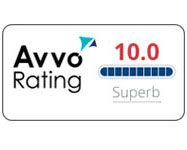The Patient Protection and Affordable Care Act requires health insurance plans to explain the reason for denial of coverage and to provide both an internal and external process to review the decision. Health insurance benefits cannot be reduced or terminated without prior advance notice and an opportunity for advance review. Benefits must continue pending the appeal.
ERISA claims regulations, 29 C.F.R. section 2560.503-1 and regulations of the Department of Health and Human Services, 45 C.F.R. section 147.136 govern the claim decision and appeals process. A denial of a claim for benefits must describe rules, guidelines, protocols and criteria supporting the decision. If the Plan contends that treatment is medically unnecessary or experimental, the decision must disclose the scientific or clinical basis for a denial of a claim.
The Plan must give Claimants at least 180 days to appeal a denial of health benefits. Plans must provide an expedited procedure for urgent care appeals. Upon request, the Plan must provide free of charge all documents relevant to the decision from which an appeal is taken, including codes for diagnosis and treatment and an explanation of the meaning of codes. If the decision is based on a medical judgment, the Plan must engage a qualified expert in the applicable field of medicine and disclose the identity of the expert to the Appellant. The Appellant has a right to review the file and present evidence prior to the deadline for the decision on appeal.
A decision on a claim for urgent care is due within 24 hours of the presentation of the claim; a decision on appeal of the denial of urgent care is due within 72 hours of receipt of the appeal. For non-urgent appeals, a decision is generally due within 60 days after receipt of an appeal.
Decisions on requests for pre-service authorization of benefits are due within 15 days of the receipt of the claim, although the time may be extended. Decisions on appeal of a denial of pre-service authorization are due within 30 days of filing the appeal.
After the denial of an internal appeal, the Appellant may request an external review of the internal plan decision. The Appellant must have at least 60 days after the final internal appeal decision to request an external review as described in the decision.
The summary plan description, policy or other evidence of coverage provided to enrollees must describe the internal and external appeal procedures and the availability of assistance in the appeal process. Appellants may appoint an attorney, health care provider or other representative to pursue the appeal.
A beneficiary of an ERISA plan sponsored by an employer or union may file a lawsuit to recover benefits under Section 502(a) of ERISA. Beneficiaries of non-ERISA plans may file a lawsuit in state court. The failure of a health plan to strictly comply with the regulatory appeal requirements subjects the decision to judicial review under the de novo standard. A health care provider may bring a lawsuit to recover benefits if the patient assigned rights to the provider.








